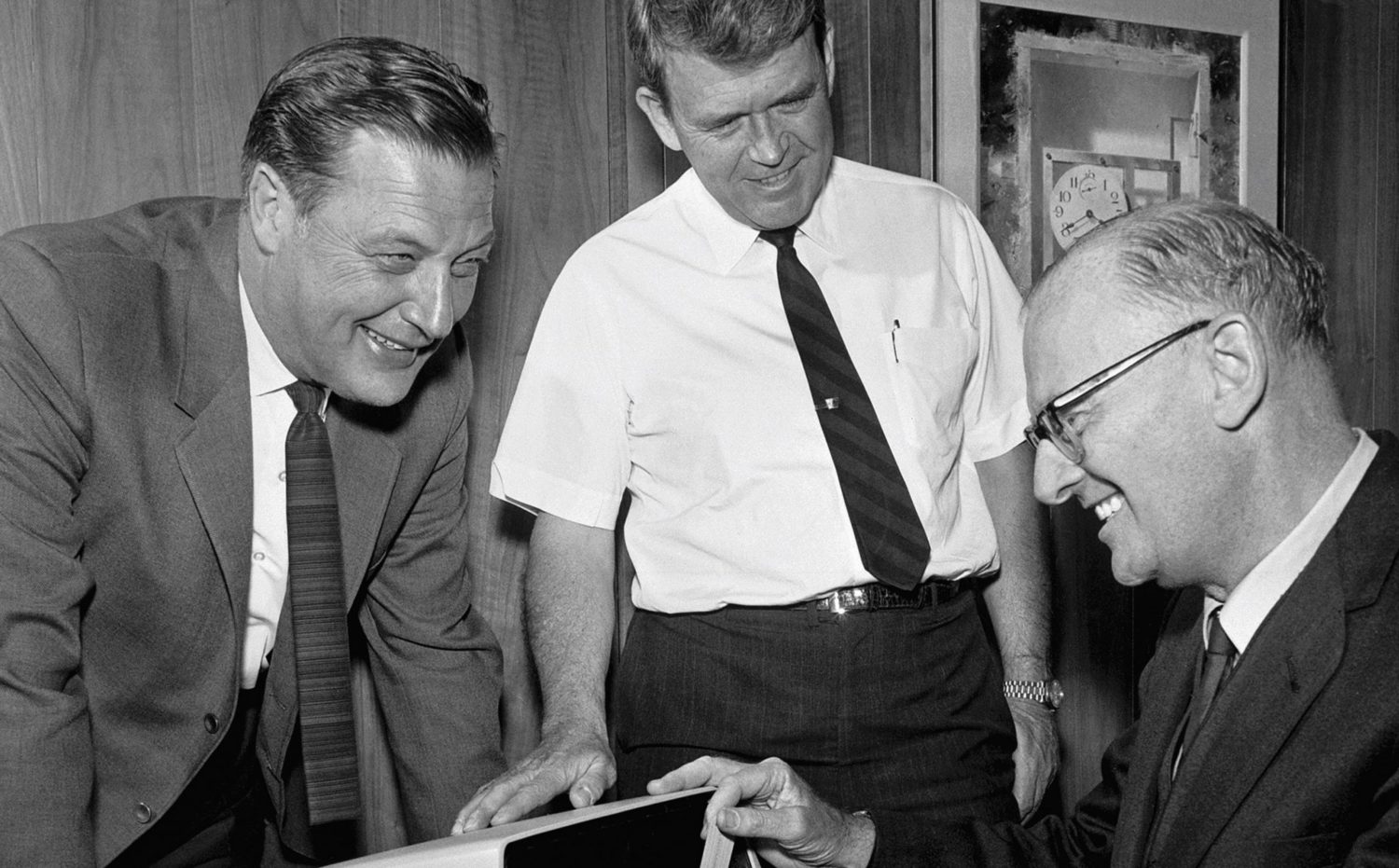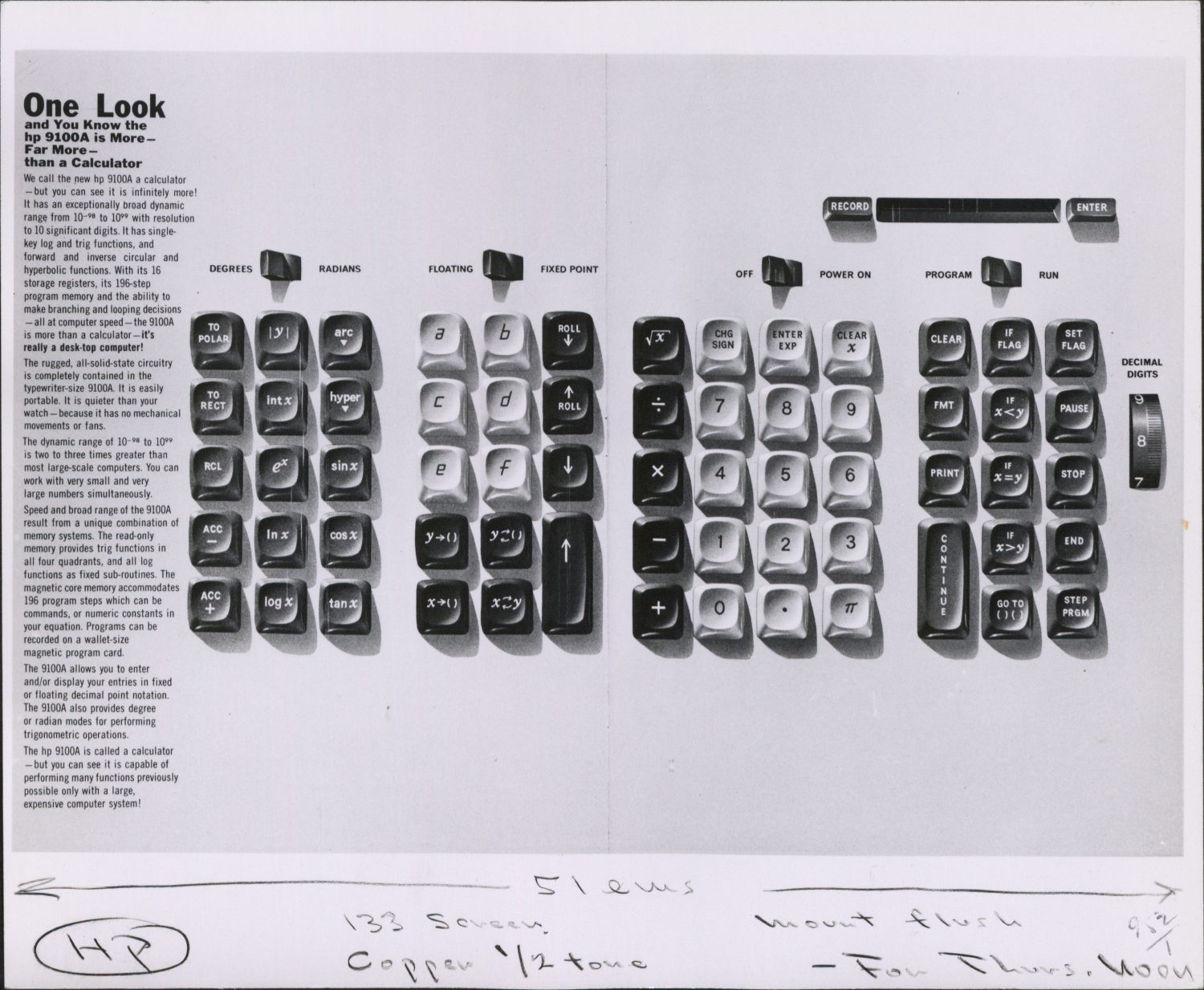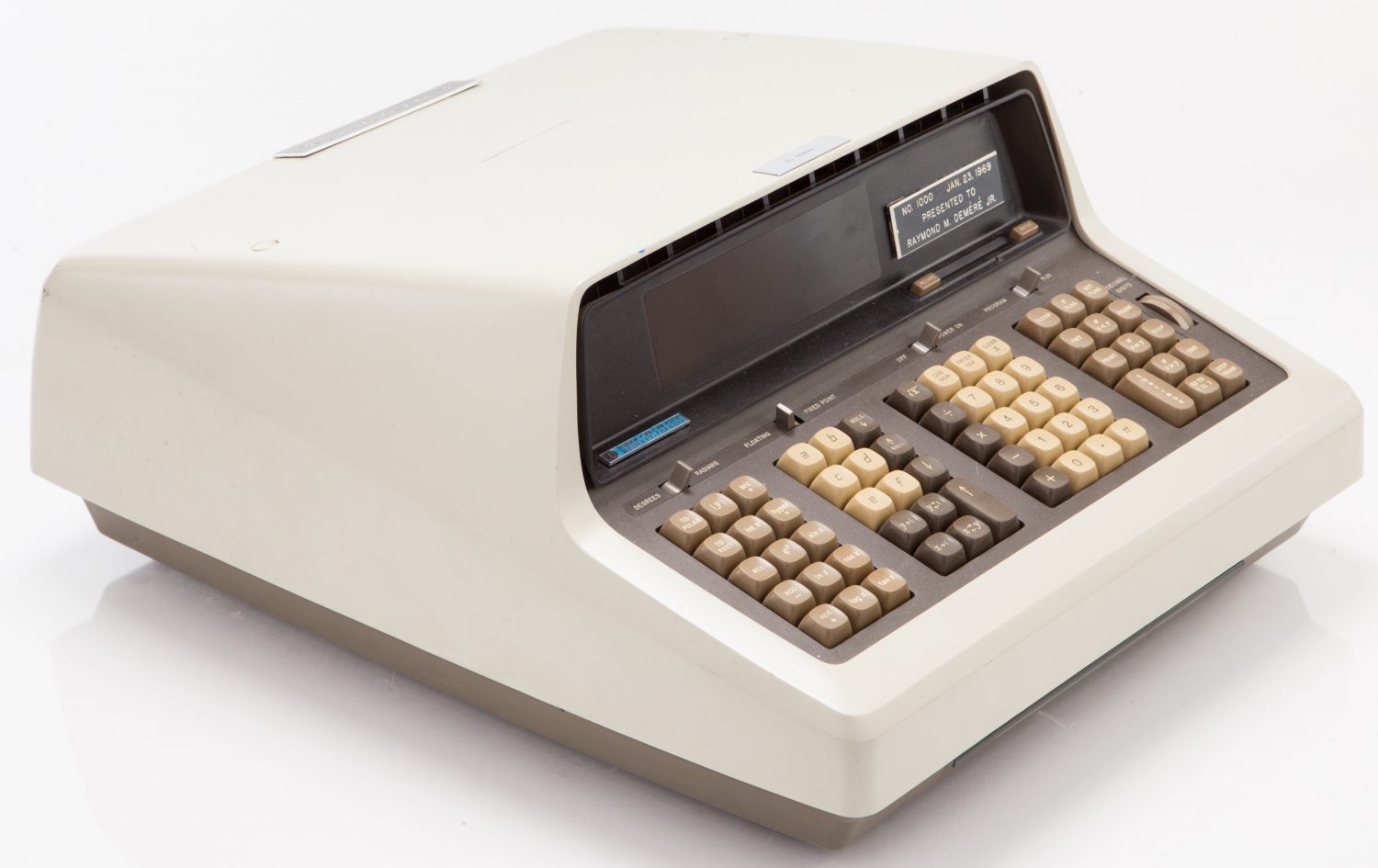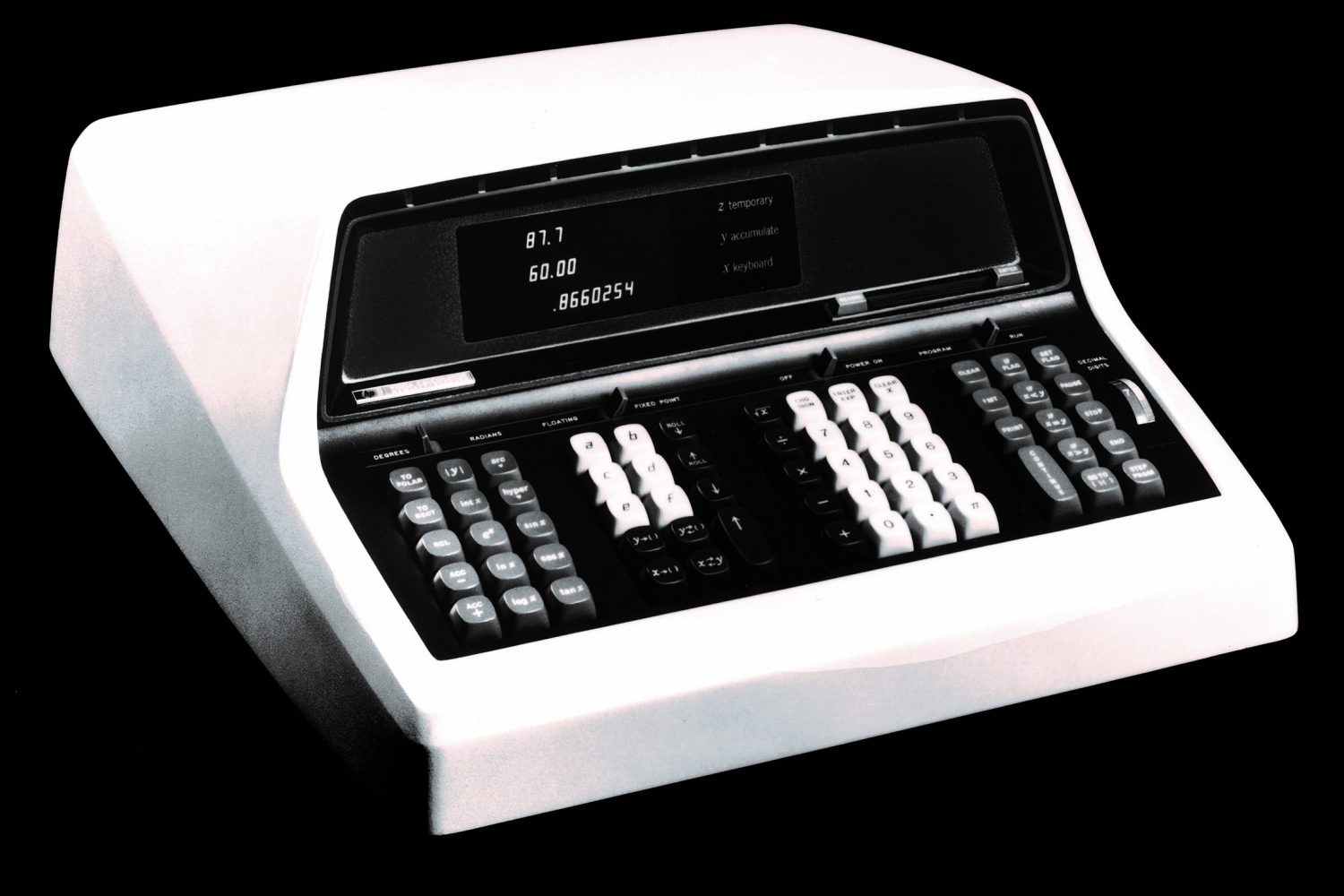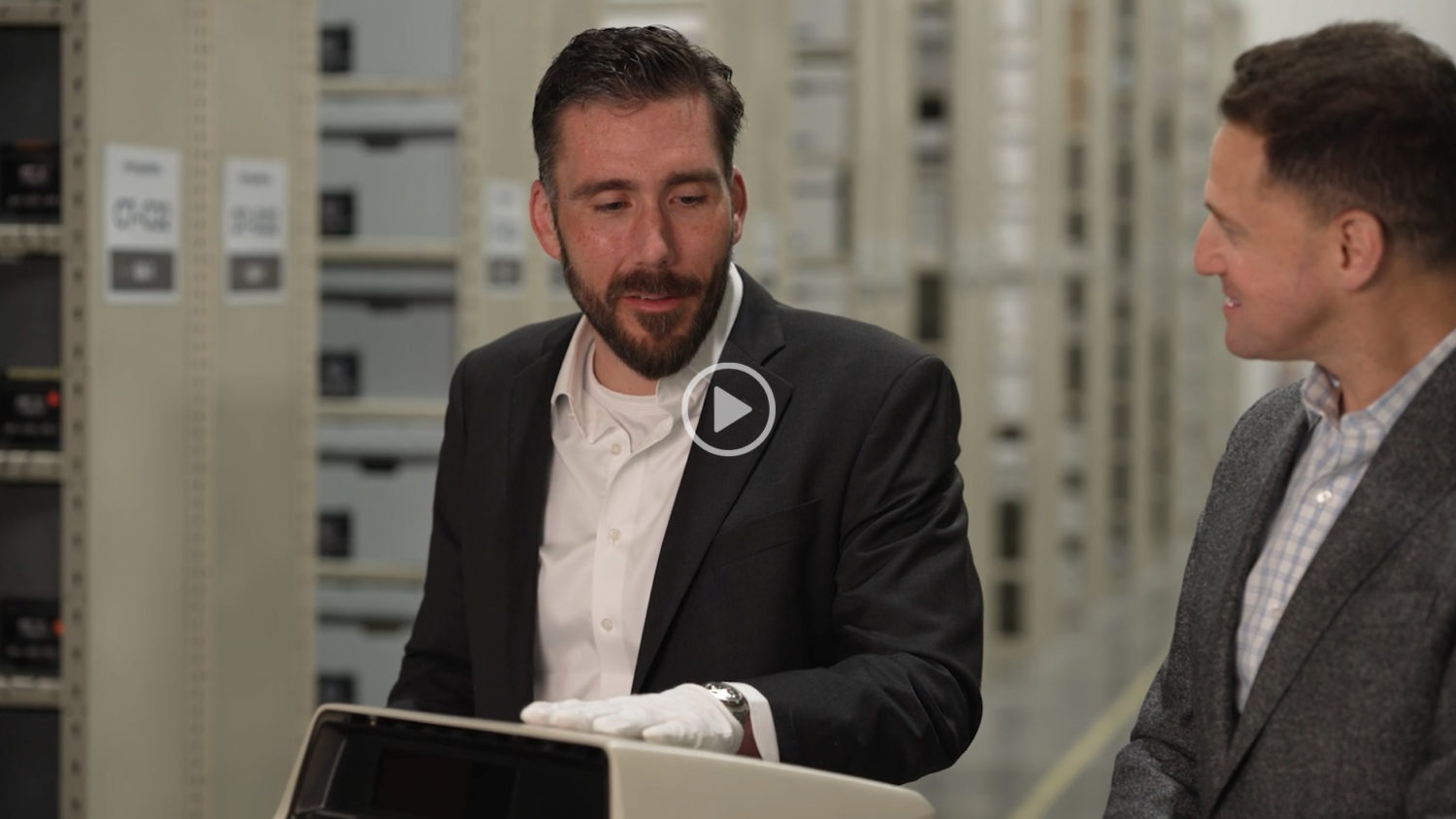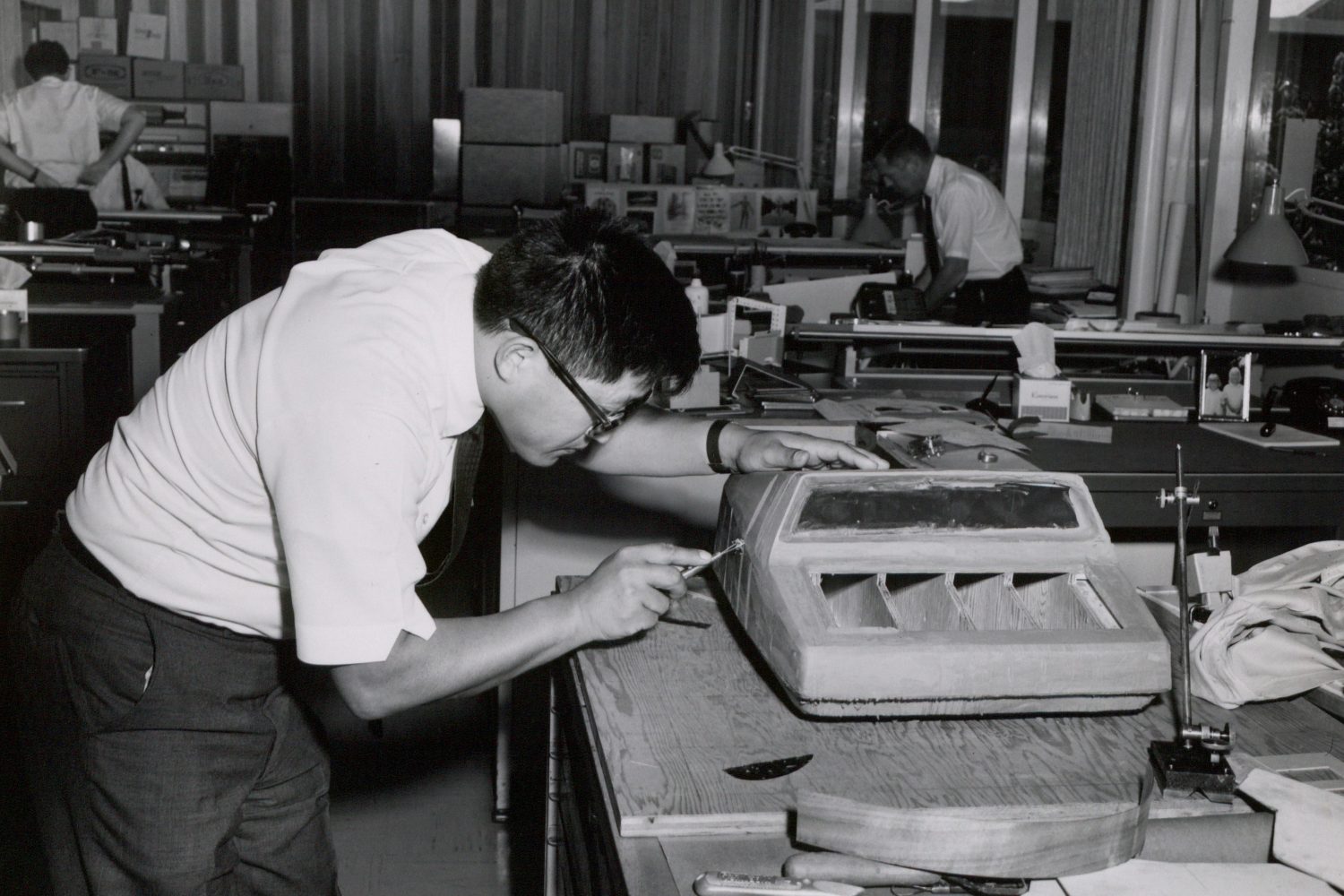Search Results for
"9100" - 6 Total Result(s)
item
Arthur Clarke’s 9100A from Hewlett-Packard
The 9100A programmable calculator captured the popular imagination about what was possible in a way few technological breakthroughs ever achieve. In 1967, when Barney Oliver (left) and Bill Hewlett (center) showed science fiction author and futurist Arthur C. Clarke (right) a prototype of the device, he was fascinated by it because it matched his vision […]
item
Calculating Change: 1960s HP 9100A Ads
The notion of a computing machine so small and cheap it could qualify as an individual or personal device was hard to grasp in the 1960s. Hewlett-Packard ads were designed to make the 9100 seem both capable and user-friendly. These ads included some of the first uses of the phrase “desk-top computer” and “personal computer” […]
item
HP 9100A: The Premiere of the PC
One of the most important inventions of the twentieth century, the 9100A was the world’s first commercially available programmable desktop calculator and the first commercial scientific calculator, meaning it was capable of complex mathematical functions previously only available through a slide-rule or a large computer. The 9100A would trigger a desktop calculator boom throughout the […]
item
READY FOR ITS CLOSEUP
The HP 9100A, the world’s first commercially available programmable desktop calculator and the first commercial scientific calculator, was one of the most important inventions in Hewlett-Packard’s history. The device was also well-known for its sleek, futuristic design. Over the next few years, the HP 9100A would be commonly used as a prop in movies and […]
item
The 9100: Designing for the Future
Check out the futuristic HP 9100 straight from the collection of the Hewlett-Packard Company Archives.
item
The 9100A: The Shape of Things to Come
Since the personal programmable device was a new idea in 1968, the look of the 9100A desktop calculator needed to be conceived from scratch. It would prove highly influential. The 9100A’s sleek, high-tech appearance would shape the form of the first PCs, and lead the device to become a prop in a number of movies.

